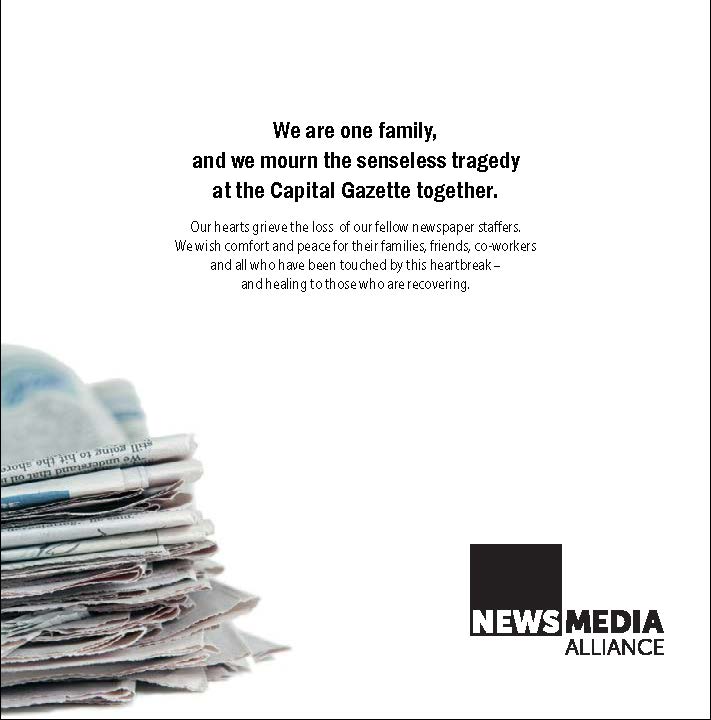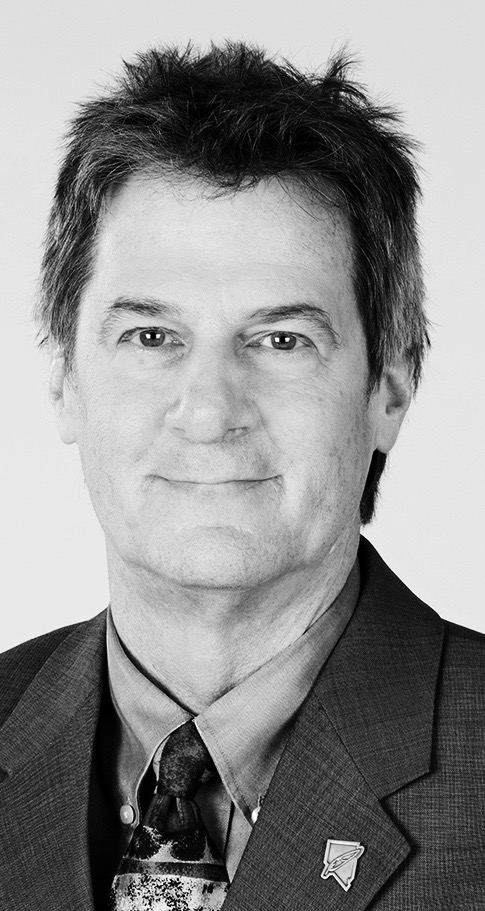Tell the truth, and don’t be afraid.
For anybody who has worked at a newspaper, the reasons behind Thursday’s shooting at The Capital Gazette in Annapolis, Md., likely brought to mind at least one nasty phone call or angry confrontation.
It happens. Somebody didn’t like something printed in the paper. They get mad.
In Maryland, it was a man who had been convicted of stalking and filed a defamation lawsuit against the paper for writing about it. The case was thrown out, because everything the paper printed, in a story by a reporter who later worked for the Las Vegas Review-Journal, was true. So he took matters into his own hands.
A few instances stand out, at least for me.
There was the guy who called to say he’d been arrested for drunk-driving and wanted to make sure I kept his name out of the paper. I didn’t know him, but I assured him his name would be in the newspaper because it was our policy to print the names of everybody arrested for driving drunk. Sure enough, he was in the police report the next day. I never heard from him again.
Then there was the guy who had murdered his mother and was the subject of a countywide manhunt. I’ve never known whether it was actually him on the phone — I don’t think it was — but, regardless, he wanted me to know that he knew who I was and where to find me and that I should stop putting lies about him in the newspaper. Assuming it was not the actual killer, who would make a phone call like that?
Most fall somewhere between those extremes. I also remember interviewing the head of a sewer district which, according to the allegations of disgruntled ratepayers, was wasting hundreds of thousands of dollars on make-work projects for cronies. The man essentially confirmed that they were ripping of the residents, then turned to me and asked: “Could we not put that in the newspaper?”
These incidents occurred many years ago, before the press had been labeled by the president as an enemy of the people. But make no mistake. We’ve long lived with a reputation that hovered somewhere near used-car salesmen with the public. Reporter frequently is listed as the worst job in America.
But if you ask the people who work in journalism, they’ll tell you it’s the only job they really want to do.
Why?
The answer came out almost immediately from Jimmy DeButts, The Capital Gazette’s editor:
We are there in times of tragedy. We do our best to share the stories of people, those who make our community better. Please understand, we do all this to serve our community.
We try to expose corruption. We fight to get access to public records & bring to light the inner workings of government despite major hurdles put in our way. The reporters & editors put their all into finding the truth. That is our mission. Will always be.
It was easy for DeButts to sum it up, because it’s the essence of what we live with every day.
Journalistic tradition makes light of the tension. “If both sides are mad at us, we must be doing something right” is a familiar line.
Likewise is a sentiment that dates to this line from an August 1910 column in the Nevada State Journal: “There’s only one bigger nuisance than the guy that wants to keep something out of the paper, and that’s the one that wants to get something in.”
Or this well-worn bromide, traced to the Atchison, Kansas, Globe: “There are but two classes of people in the world — those who have done something and want their names kept out of the paper, and those who haven’t done anything worth printing and want their names put in.”
Our job is to put things in the paper, not to hide them from the public. Every time you give in to a bully, it makes it harder to stop the next one.

That first line, by the way, comes from my college newspaper. It rings truer every day.
 Nevada Press Association The best in Nevada journalism since 1924
Nevada Press Association The best in Nevada journalism since 1924
